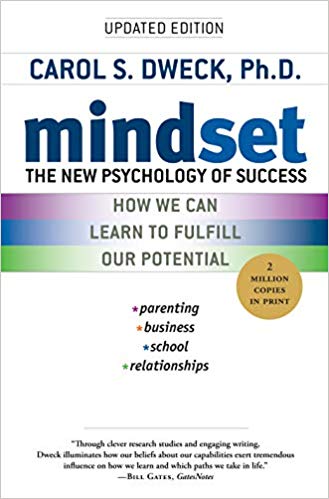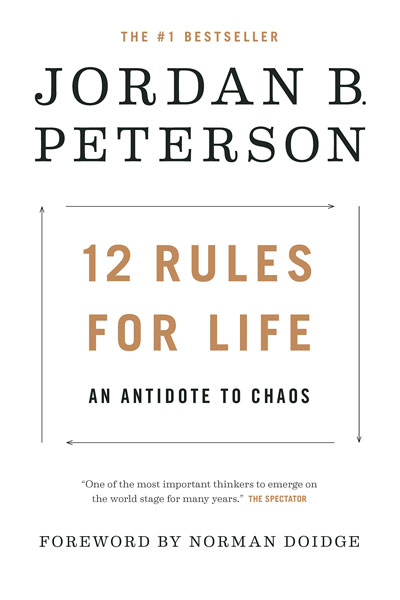

This article gives you a glimpse of what you can learn with Shortform. Shortform has the world’s best guides to 1000+ nonfiction books, plus other resources to help you accelerate your learning.
Want to learn faster and get smarter? Sign up for a free trial here .
How can you raise kids to be self-confident, independent, and well-adjusted? What life skills and attitudes should every parent instill in their child?
There isn’t just one right way to parent a child. Every family has different goals and situations, so what’s best for one family isn’t always best for another. However, there are some things every child should learn to grow up into a successful and well-adjusted adult.
With this in mind, here are a few pieces of parenting advice for raising successful and well-adjusted children.
The Challenge of Parenting
Most parents have similar long-term goals for their children: They want them to be happy, independent, confident, and creative. But it’s easy to forget about these goals in the short term and shift your focus to whether or not the child is being “good” (doing what you want them to do) or “bad” (doing something else) at any given moment.
Moreover, mainstream parenting advice focuses almost exclusively on discipline: how to use rewards to encourage good behavior and punishments to discourage bad behavior. Even seemingly the best progressive parenting advice (for example, doling out attention, affection, and praise when you catch your child behaving well or putting a misbehaving child in a time-out) still buys into an overall parenting framework built around rewards and punishments. This framework is outdated, and it may even be damaging your children.
If you want to raise a successful child, discipline isn’t the only thing you must inculcate. You need to teach your child skills that will help them succeed in life and form healthy relationships with others.
Teaching Confidence
Parents and teachers typically try to build children’s self-confidence by praising their abilities, but this can be harmful. Praising their ability sends the message that adults value ability and can determine a child’s ability from his or her performance. This is a fixed mindset. Here’s how it plays out.
Researchers gave early adolescent students ten problems to solve, then praised their performance in two different ways: some students were praised for their ability (“You must be smart at this”), while another group was praised for their effort (“It looks like you worked really hard”).
Praising students for their abilities pushed them into a fixed mindset. When offered another difficult task that they could learn from, they rejected it, not wanting to show any cracks in their talent by failing. However, the students who were praised for their effort (a growth-minded approach) wanted to take on the new challenge.
Researchers then gave all the students new problems, on which they didn’t do well. The children praised for their ability began feeling like failures—they’d been told that their earlier success meant they were smart so now they felt stupid. Their performance steadily declined. In contrast, the students who were praised for their effort tried harder and their performance continued to improve. What’s more, when asked to write a report on the experience, almost 40 percent of the children praised for their ability lied about their performance. Telling children they were smart hurt their performance and turned them into liars.
So, if you want to raise a confident child, the most important piece of parenting advice you should take on board is to praise your child for effort: Praise your child for what they’ve achieved through good study strategies, practice, effort, and persistence. Show interest in how they succeeded or improved, and by how much, rather than on the result or performance itself. For instance, you might comment, “That was much better than last time—your practice is really paying off,” or, “It’s great how you kept trying different tricks to remember all those facts.”
Teaching Emotional Regulation
Another fundamental life skill every parent should teach their child is how to effectively regulate their emotions. Children with high emotional intelligence are better able to cope with difficult emotions because they understand that feelings are temporary. They are also more adept at recognizing the complexity of their own and other people’s emotions.
From an early age, your child needs to understand two lessons about emotions: that emotions come and go, and that they don’t define who they are—feelings are states, not traits. It is also important to introduce the idea that feelings are complex and that it’s possible to feel many things at once.
Lesson 1: Feelings Are Temporary
Explain to your child that emotions are like the weather: There’s no doubt that the clouds and the rain are real, but you also know that they won’t last forever. When your child is consumed by difficult emotions, it can be hard for them to imagine ever feeling better. If they can’t visualize it in the future, remind them of a recent time—maybe earlier that day—when they were happy or felt differently about the very thing that has upset them now.
Lesson 2: Emotions Are Complex
Use everyday opportunities to illustrate how different feelings can coexist. If they are upset that their friend canceled a playdate for this weekend, acknowledge that they are feeling disappointed, and help them to recognize that another part of her probably feels excited about their plans to reschedule the following weekend, and still another part of them is probably thinking about what they are going to play during recess today.
Try using the acronym SIFT to help your child integrate different emotions:
1) Sensations include hunger and tiredness as well as the many ways that emotions affect the body. For example, your child can learn that butterflies in her stomach mean that she’s nervous.
2) Images include images from memories and from your child’s imagination and dreams, all of which can affect how she’s interpreting and reacting to the present. For example, if your child remembers the image of her being picked last for teams during recess, she’s inclined to feel left out among her peers.
3) Feelings and emotions can be symptomatic of an experience, but they can also influence your experience. For example, if you hit traffic on the way to your picnic and it puts you in a sour mood, you’re more likely to get annoyed at the noise from the children playing nearby.
4) Thoughts include the things you think about, your self-talk, and how you narrate your experiences. When your child becomes more aware of her thoughts, she doesn’t have to remain a victim of them—instead, she can direct them in a positive direction and reject negativity.
The Whole-Brain Child
by Daniel J. Siegel and Tina Payne Bryson
35 min reading time
83.9k reads
audio version available
Teaching Socialization
In addition to confidence and emotional regulation, children need training and feedback to understand how to navigate human society. According to clinical psychologist Jordan Peterson, if you don’t teach your child how to harmoniously coexist in the wider human society, you’re, in effect, outsourcing the training to society. “Here’s my kid—society, please teach him the right rules.”
The problem is that society doesn’t care about your child nearly as much as you do. If you dislike your own child at times, imagine how other people will react. Other people will swiftly judge and punish your child mercilessly, with nowhere near the tolerance and patience that you have for your child. Here are examples of how a poorly socialized child will be rejected by society:
- In school, other children will refuse to spend time around a temperamental, unsociable child.
- Teachers will run out of patience and focus attention on more pleasant children, causing your child to fall behind.
- Parents will refuse your child’s presence at their playtimes.
- If these habits persist into adulthood, employers will fire them; relationship partners will reject them.
You are your child’s best shot at teaching society’s rules. Society doesn’t have the patience to teach your child—there are many other well-adjusted, functioning people to spend time on. A bad kid will simply be rejected and left behind.
And this problem can get worse throughout a child’s life. An early poor social experience can set up a vicious cycle of chronic maladjustment—a maladjusted child will act poorly; she will receive negative feedback from the world, often without understanding why; she will withdraw and feel rejected, causing anxiety, depression, and resentment. This further receives negative feedback from the world. This can last for a lifetime.
Shielding your child from corrective feedback is in effect crippling them in the long run. And early exposure matters—a child not taught to behave properly by age 4 will have lasting social difficulties.
Jordan Peterson gives the following parenting advice for raising socially adjusted kids:
- Set the rules, but not too many.
- Some suggestions—don’t bite, kick, or hit. Don’t torture and bully other children. Eat in a civilized way, so other people are pleased to have you. Learn to share, so other kids will play with you. Pay attention when spoken to by adults, so they will feel eager to teach you. Be good company so that you’re invited to have fun.
- Use the minimum necessary force. Escalate only if necessary.
- Start with a glare, then verbal admonishment, then a time out, then taking away belongings—escalating until they get the point.
- Physical punishment may be necessary, depending on the child.
- A patient adult can defeat a two-year-old, because time lasts forever when you’re two.
- When they comply, give them a reward, like a pat on the head or a compliment.
- Parenting is best done with a partner.
- Raising young children is demanding, and it’s easy for one parent to make a mistake. Another parent helps cover for the other and limit overreactions.
- Peterson acknowledges that single parents have an admirably difficult life, but we shouldn’t pretend that all family forms are equally good. Two good parents are better than one.
- Understand your own capacity for anger and revenge.
- You might think that you have infinite patience and love for your child, but you don’t – not if your child dominates you.
- If you don’t discipline your child, you’ll start resenting your child. A vicious cycle can result where you punish them subtly (eg don’t show them attention), which then breeds resentment in the child, which causes them to seek vengeance more aggressively, which causes you to resent them more, and so forth. Before you know it, your family has a schism that’s hard to repair.
Final Words
If you’re a typical parent, you want your children to succeed and live happily and harmoniously with others. To make this happen, you need to teach your child not only how to behave—a mistake many parents make—but also how to regulate their emotions, how to persevere through difficulties, and how to navigate the wider human society.
If you enjoyed our article about parenting advice, check out the following suggestions for further reading:
In Unconditional Parenting, author and lecturer Alfie Kohn argues that we should throw away the standard parenting rulebook and replace it with a new approach built on unconditional support, acceptance, and understanding. He explains what kids really need from their parents, why using rewards and punishments doesn’t work (and can even backfire) in the long term, and what you can do to make your kids feel loved and valued for who they are rather than what they do.
Disciplining kids often involves tears, yelling, and drama. In No-Drama Discipline, Daniel J. Siegel and Tina Payne Bryson offer expert parenting advice on how to discipline children without the drama, which creates the space to teach children, not just argue with them. This book builds on the lessons of the authors’ previous collaboration on parenting, The Whole-Brain Child, but with a specific focus on discipline.

Want to fast-track your learning? With Shortform, you’ll gain insights you won't find anywhere else .
Here's what you’ll get when you sign up for Shortform :
- Complicated ideas explained in simple and concise ways
- Smart analysis that connects what you’re reading to other key concepts
- Writing with zero fluff because we know how important your time is









